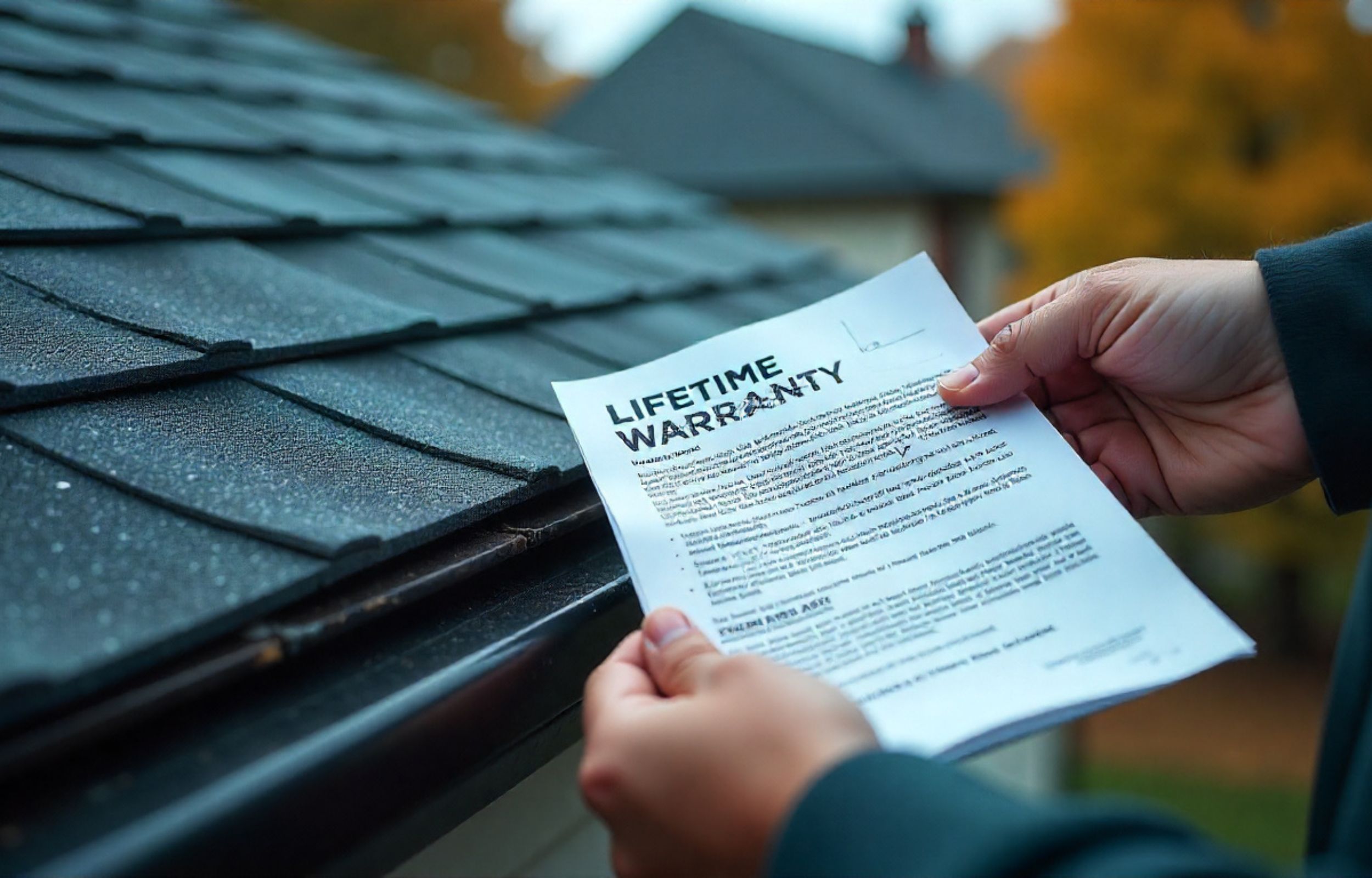
What Most Roofers Won’t Tell You About ‘Lifetime’ Warranties
When you’re putting money into a new roof, hearing the words “lifetime warranty” can sound like you’ve hit the jackpot. After all, who wouldn’t want the peace of mind that their roof is covered… for life?
But here’s the thing: most homeowners don’t realize that lifetime doesn’t always mean what they think it does. And unfortunately, a lot of roofing contractors aren’t exactly racing to explain the fine print.
Let’s break it down. We’re going to walk through what these warranties actually cover, where they fall short, and the questions you really need to ask before signing anything.
So, What Does “Lifetime” Actually Mean?
This might come as a surprise, but lifetime doesn’t mean your lifetime—or even the lifetime of your home. In roofing terms, it usually means the expected lifespan of the material itself. Depending on the product, that’s anywhere from 25 to 50 years.
Sounds decent, right? Well, here’s the catch: most of these warranties are prorated after 10 or 15 years. That means if your roof runs into trouble two decades down the line, you might only get a small portion of the cost covered—if anything at all.
Two Warranties, Two Very Different Purposes
There are two types of warranties most roofing projects involve:
- Manufacturer (Material) Warranty – This one covers problems with the roofing materials, like defective shingles.
- Workmanship Warranty – Offered by your roofer, this covers mistakes made during installation.
Now here’s where a lot of people get tripped up: if your roof starts failing due to poor installation—and not a material defect—your manufacturer’s warranty probably won’t help you. In fact, it might get voided altogether.
That’s why having a solid workmanship warranty from a reliable contractor matters just as much, if not more.
The Fine Print You Didn’t See Coming
Let’s talk about the stuff buried deep in the legal jargon—the kind of things that can quietly wipe out your coverage.
- Poor Ventilation
Your attic needs to breathe. If it’s not properly ventilated, even high-end shingles can break down faster—and yes, that can void your warranty. - Neglected Maintenance
A lot of warranties require regular inspections and upkeep. If you can’t prove that you’ve maintained your roof, your claim might be denied. - Storm Damage Isn’t Always Covered
Wind, hail, and other severe weather events are often excluded or only partially covered. That means your insurance has to take the hit—not your warranty. - Unauthorized Repairs
Had someone else fix your roof without approval? You may have accidentally voided your warranty.
Most of this isn’t mentioned up front. And if you don’t know what to look for, it’s easy to miss.
Transferable? Sometimes. Sort Of.
Some roofers like to tout transferable warranties as a big selling point, especially if you plan to sell your home. But most of these are only transferable once—and only if you follow specific steps within a short window (say, 30–60 days after the sale).
Miss that deadline? Forget to submit the paperwork? Warranty = gone.
Installation Quality Is Everything
Roof trends in 2025, something not enough people know: most roofing failures aren’t caused by bad shingles. They’re caused by bad installs.
In fact, more than 65% of roofing issues stem from poor workmanship, not material defects. So even if you buy the best product on the market, it won’t mean much if it’s installed the wrong way.
That’s why you should always ask your contractor about their workmanship warranty. A reputable roofer should put that in writing—5 to 10 years is standard. If they won’t, or if they only offer a vague verbal promise, it’s a red flag.
The Questions You Should Be Asking
Before you sign on the dotted line, take a few minutes to ask your roofer some real-deal questions:
- What exactly does this warranty cover?
- Is it prorated over time? When does that start?
- Does it include labor and materials, or just materials?
- What actions or events could void the warranty?
- Can the warranty be transferred to a future homeowner?
- What kind of workmanship warranty do you offer?
If a contractor can’t—or won’t—answer these clearly, it’s probably time to keep looking.
Don’t Fall for the Hype
Look, not all “lifetime warranties” are bad. Some offer genuine value and protection, especially if you take care of your roof and follow the terms.
The problem is when roofers use the term like a marketing hook and leave out all the important context. That’s where homeowners get burned.
The bottom line? Don’t just go by what sounds good in a sales pitch. Dig deeper. Ask questions. Read the warranty (yes, really). And make sure everything you care about is backed up in writing.
Your roof is one of the biggest investments you’ll make in your home. Make sure the warranty that comes with it is more than just a promise—it should be a real safety net.
If you’re planning a roofing upgrade, hire reliable and professional new roof installation services that prioritize quality and transparency from day one.



